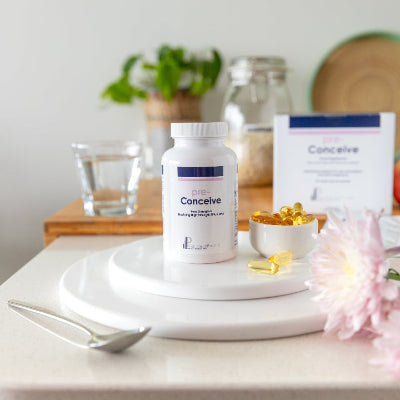Understanding your ovulation and menstrual cycle is essential not only for fertility tracking but also for overall hormonal health. For many women, achieving regular cycles and optimal ovulation is a key indicator of reproductive wellness. While tracking ovulation using calculators can provide insight, supporting your body with proper nutrition and supplements can further enhance cycle regularity and hormonal balance.
What is Ovulation?
Ovulation is the process during which an ovary releases a mature egg, making it available for fertilisation. This usually occurs around the midpoint of a woman’s menstrual cycle, though timing can vary. The process is a critical part of the menstrual cycle and is directly linked to fertility.
Ovulation is regulated by a complex interplay of hormones:
- Gonadotropin-releasing hormone (GnRH): Produced by the hypothalamus, GnRH signals the pituitary gland to release other hormones essential for ovulation.
- Follicle-stimulating hormone (FSH): Stimulates the growth and maturation of ovarian follicles, each containing an egg.
- Luteinising hormone (LH): A surge in LH triggers the release of the mature egg from the ovary.
- Oestrogen & Progesterone: Oestrogen rises as the follicle matures, and after ovulation, progesterone prepares the uterine lining for potential implantation. Disruptions in this delicate hormonal balance can lead to irregular cycles, anovulation (absence of ovulation), or hormonal imbalances that affect fertility and overall health.
How Nutrition Influences Hormonal Cycles and Ovulation
The hormones that regulate ovulation rely heavily on the nutrients your body receives. A balanced diet rich in vitamins, minerals, and essential fatty acids supports both hormone production and the complex feedback loops that govern the menstrual cycle.
Key Nutrients for Ovulation and Hormonal Balance:
- Vitamin B6 – Supports progesterone production and helps regulate oestrogen levels.
- Vitamin D – Plays a role in reproductive hormone regulation and can influence ovarian follicle development.
- Magnesium – Helps modulate cortisol (stress hormone) levels and supports regular cycles.
- Zinc – Essential for FSH and LH production, and plays a role in egg maturation.
- Omega-3 Fatty Acids – Promote healthy hormone signalling and reduce inflammation, supporting optimal ovulation.
- Iron – Important for blood health and overall reproductive function.
A diet rich in whole foods, healthy fats, lean proteins, and colourful vegetables can provide many of these nutrients. For some women, supplementation may be necessary, especially if blood tests reveal deficiencies or dietary restrictions limit nutrient intake.
Supplements That May Support Regular Cycles
While no supplement can guarantee ovulation, certain nutrients have been shown to support hormonal health and cycle regularity:
- Folic Acid / Methylated Folate: Supports overall reproductive health and healthy ovulation.
- Vitamin D3 + K2: Supports ovarian function and hormone balance.
- Magnesium & Zinc Supplements: Can help regulate menstrual cycles, especially if dietary intake is insufficient.
- Omega-3 Fish Oil: Anti-inflammatory properties support optimal reproductive hormone signalling.
It’s important to remember that supplements are most effective when combined with an overall healthy lifestyle, including stress management, sleep, and moderate exercise.
Using an Ovulation Calculator
An ovulation calculator can help track your fertile window by estimating when ovulation occurs based on your cycle length. While these tools are useful, they rely on consistent cycle lengths and cannot account for day-to-day hormonal fluctuations. Combining ovulation tracking with good nutrition and supplementation can provide a holistic approach to reproductive wellness.
Tips for Effective Use:
- Track your cycle for several months to get an accurate average length.
- Monitor signs of ovulation, such as changes in cervical mucus, basal body temperature, or mild ovulatory pain.
- Use ovulation calculators in conjunction with lifestyle changes and nutrient support for best results.
Conclusion
Regular cycles and healthy ovulation are signs of balanced hormonal health. While ovulation calculators provide valuable insight, supporting your body with proper nutrition and targeted supplementation can make a meaningful difference. Vitamins, minerals, and essential fatty acids all play critical roles in hormone production, ovulation, and cycle regularity. By combining cycle tracking with nutrient-rich eating and thoughtful supplementation, women can support their reproductive health, optimise ovulation, and feel more in tune with their bodies.
Please follow this link to our Ovulation Calculator, here. For additional reading and understanding of ovulation, you can visit the Cleveland Clinic, the Mayo Clinic, or The Royal Women’s Hospital, for more.






